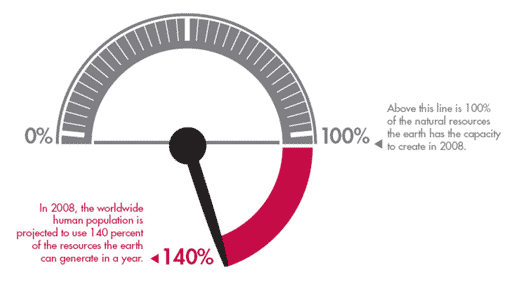
As of September 23 we humans have used all the resources our earth can produce this year. That means we are borrowing resources from 2009 and that we are literally consuming our children’s resources.
And as each year passes Earth Overshoot Day happens earlier and earlier. Last year Earth Overshoot Day happened on October 6. Then we consumed 30% more natural resources than what the earth can reproduce under a whole year. Now in 2008 that number has increased with 10% as the Global Footprint Network expects us to use 140% of the Earths resources.
"Globally, we now require the equivalent of 1.4 planets to support our lifestyles. But of course, we only have one Earth. The result is that our supply of natural resources -- like trees and fish -- continues to shrink, while our waste, primarily carbon dioxide, accumulates."
Some countries contribute more to these numbers than others do. If everyone lived like a resident of the following countries we would need this many earths:
- United States 5.4 Earths
- Canada 4.2 Earths
- United Kingdom 3.1 Earths
- Germany 2.5 Earths
- Italy 2.2 Earths
- South Africa 1.4 Earths
- Argentina 1.2 Earths
- Costa Rica 1.1 Earths
- India 0.4 Earths
What do you think? How can we manage to overcome our increasing consumption rate and overpopulation? And how can one personally contribute to ending the Overshoot Day?

Recommended Comments
Join the conversation
You can post now and register later. If you have an account, sign in now to post with your account.